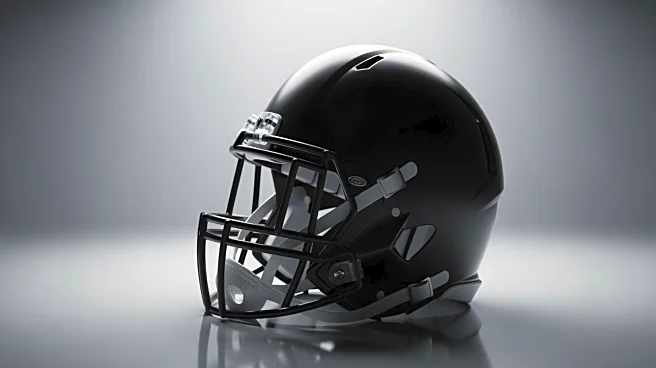What's Happening?
Greg Ellis, former Dallas Cowboys assistant coach, is addressing the mental health challenges faced by NFL players following the tragic death of Marshawn Kneeland, a player he coached. Kneeland, who was
drafted by the Cowboys from Western Michigan, died of a self-inflicted gunshot wound. Ellis, who has been an advocate for mental health awareness, regrets not maintaining closer contact with Kneeland, despite noticing signs of withdrawal. The incident highlights the ongoing mental health struggles within the NFL, where players are often conditioned to play through pain and adversity. Ellis, who has directed a film on mental illness, is now taking classes to better recognize mental health warning signs.
Why It's Important?
The tragic death of Marshawn Kneeland underscores the critical need for improved mental health support within the NFL. Players face immense pressure and are often expected to suppress their struggles, which can lead to severe consequences. The NFL has programs to support players, but experts argue that mandatory counseling should be implemented to address the mental health challenges associated with being a professional athlete. The incident has prompted discussions on the importance of recognizing warning signs and providing adequate support to prevent similar tragedies. This development could lead to increased advocacy for mental health resources in sports, benefiting players and their families.
What's Next?
In the wake of Kneeland's death, Dallas Cowboys players are gathering to mourn and come to terms with the loss. Flowers have been placed at Kneeland's locker, and discussions about mental health support are expected to continue. Greg Ellis hopes to have another opportunity to reach out and help players struggling with mental health issues. The NFL may face pressure to enhance its mental health programs and consider mandatory counseling for players. Advocacy from players like Dak Prescott and Solomon Thomas, who have personal experiences with suicide, may drive further initiatives to support mental health in the league.
Beyond the Headlines
The incident highlights the cultural challenges within professional sports, where athletes are often seen as 'modern gladiators' and praised for their strength, making it difficult for them to seek help. This cultural perception can hinder mental health awareness and support, emphasizing the need for a shift in how athletes' mental health is addressed. The tragedy may lead to broader discussions on the ethical responsibility of sports organizations to prioritize mental health and create environments where athletes feel safe to express their struggles.









